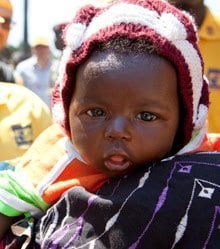
Polio eradication activities have resulted in several landmark successes since 2010. India, long regarded as the nation facing the greatest challenges to eradication, was removed from the list of polio-endemic countries by the World Health Organization (WHO) in February. Outbreaks in previously polio-free countries were nearly all stopped.
The GPEI’s emergency action plan was developed in coordination with new national emergency plans. The plan builds on India’s success and outlines a range of new strategies and initiatives to better support polio eradication efforts, including:
- Intensified focus on the worst-performing areas of Nigeria, Pakistan, and Afghanistan to increase vaccination coverage by the end of 2012 to levels needed to stop transmission
- New approaches tailored to each country to tackle persistent challenges and improve polio vaccination campaign performance
- Heightened accountability, coordination, and oversight to ensure success at every level of government and within every partner agency and organization
- A surge of technical assistance and social mobilization capacity
Full funding of new plan critical – Already, funding shortages have forced the GPEI to cancel or scale back critical immunization activities in 24 high-risk countries, leaving more children vulnerable to the disease and polio-free countries exposed to the risk of reintroduced transmission.Since the start of 2012, the GPEI has moved its operations into emergency mode. The U.S. Centers for Disease Control and Prevention (CDC) has activated its Emergency Operations Center, UNICEF has officially activated an Interdivisional Emergency Coordinating Committee operating directly under the deputy executive director, and WHO has moved its polio operations to its Strategic Health Operations Centre.

